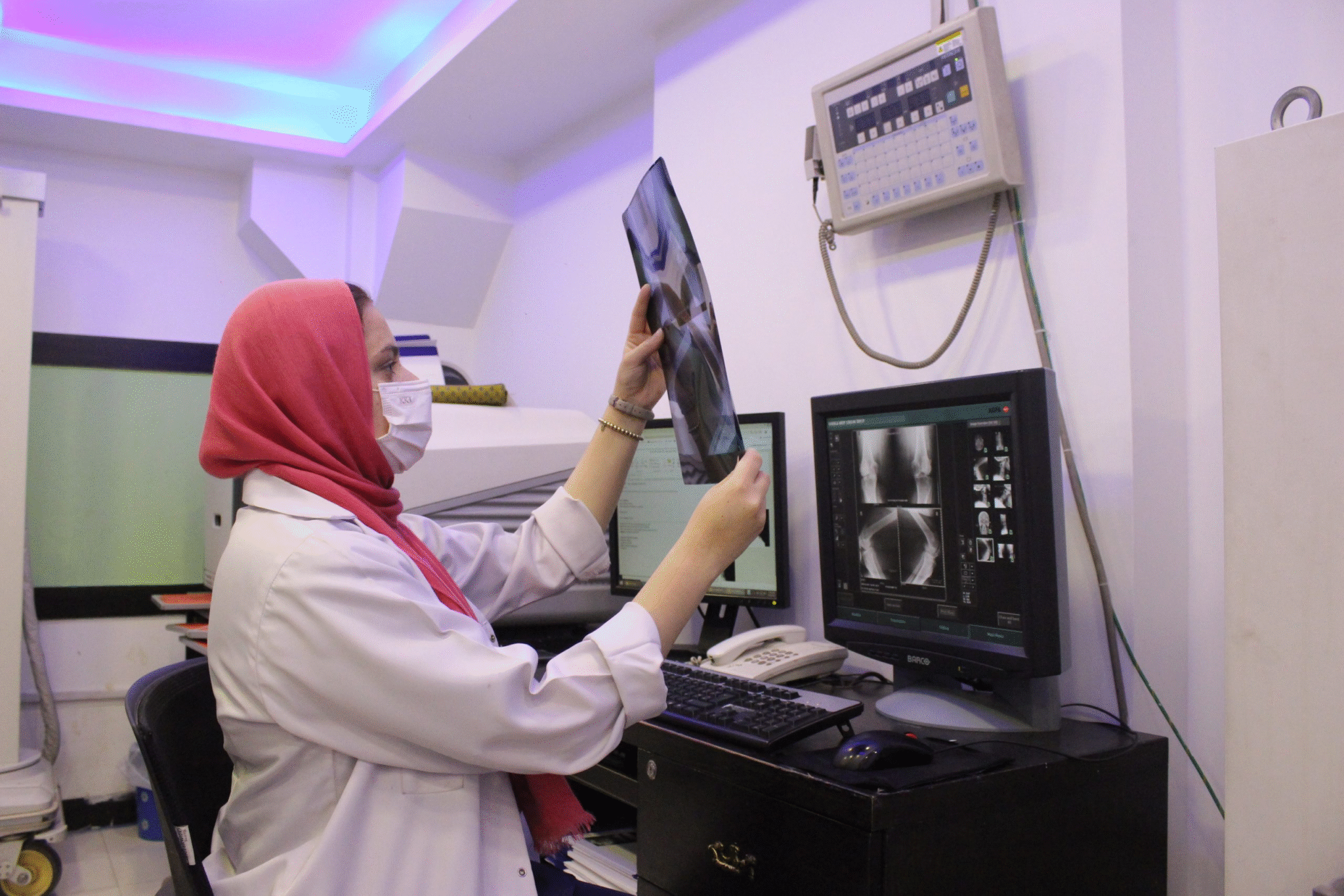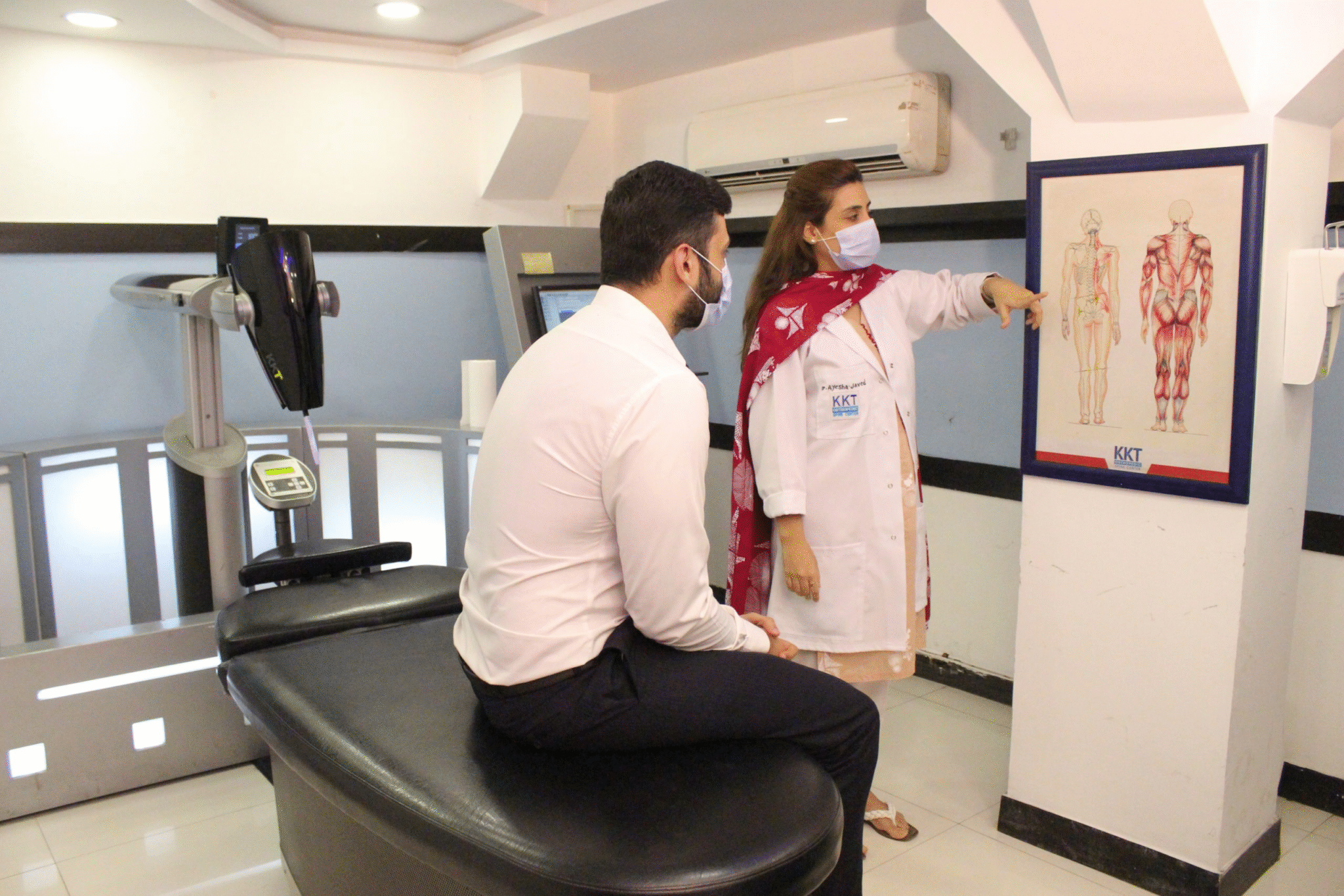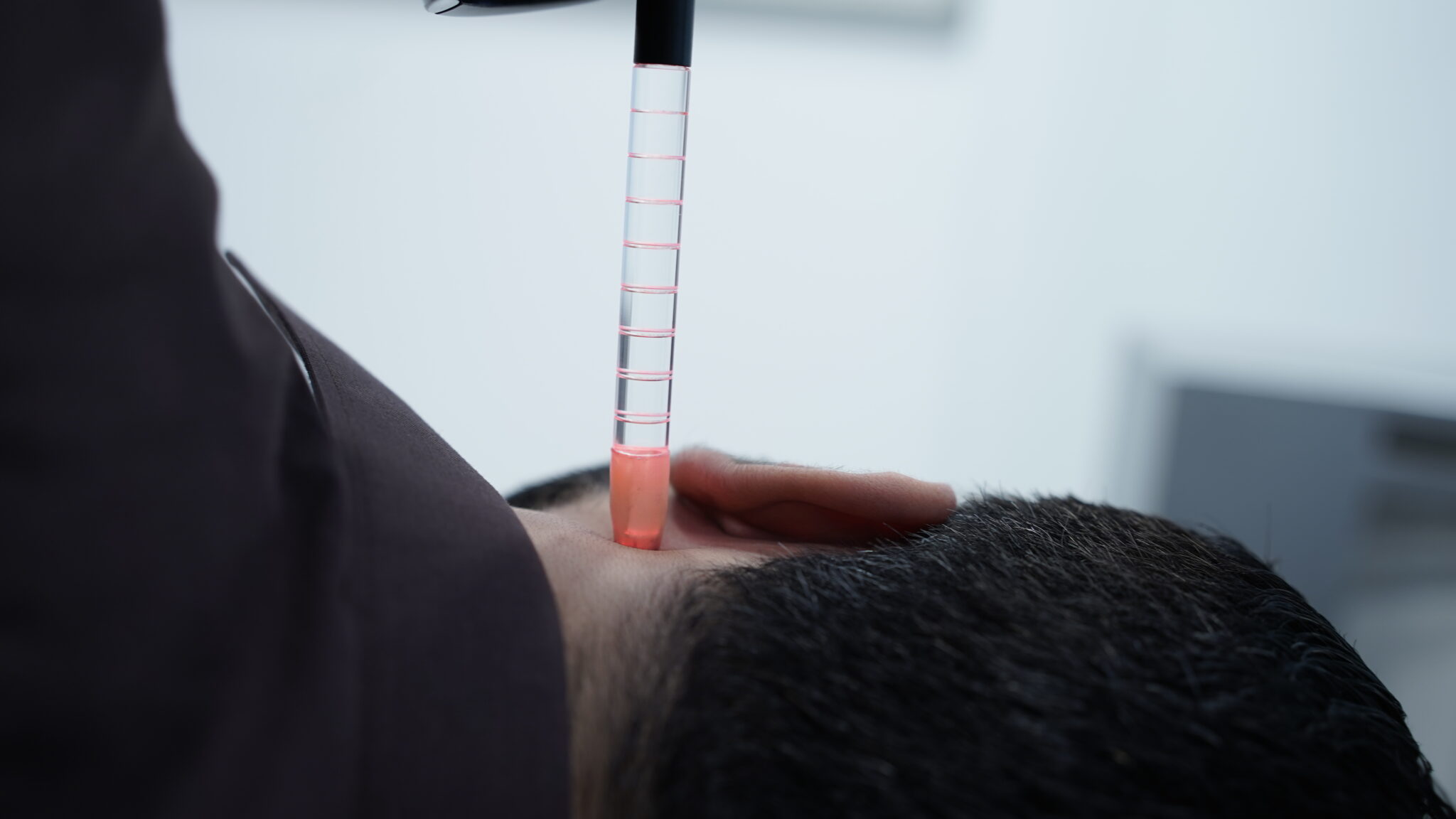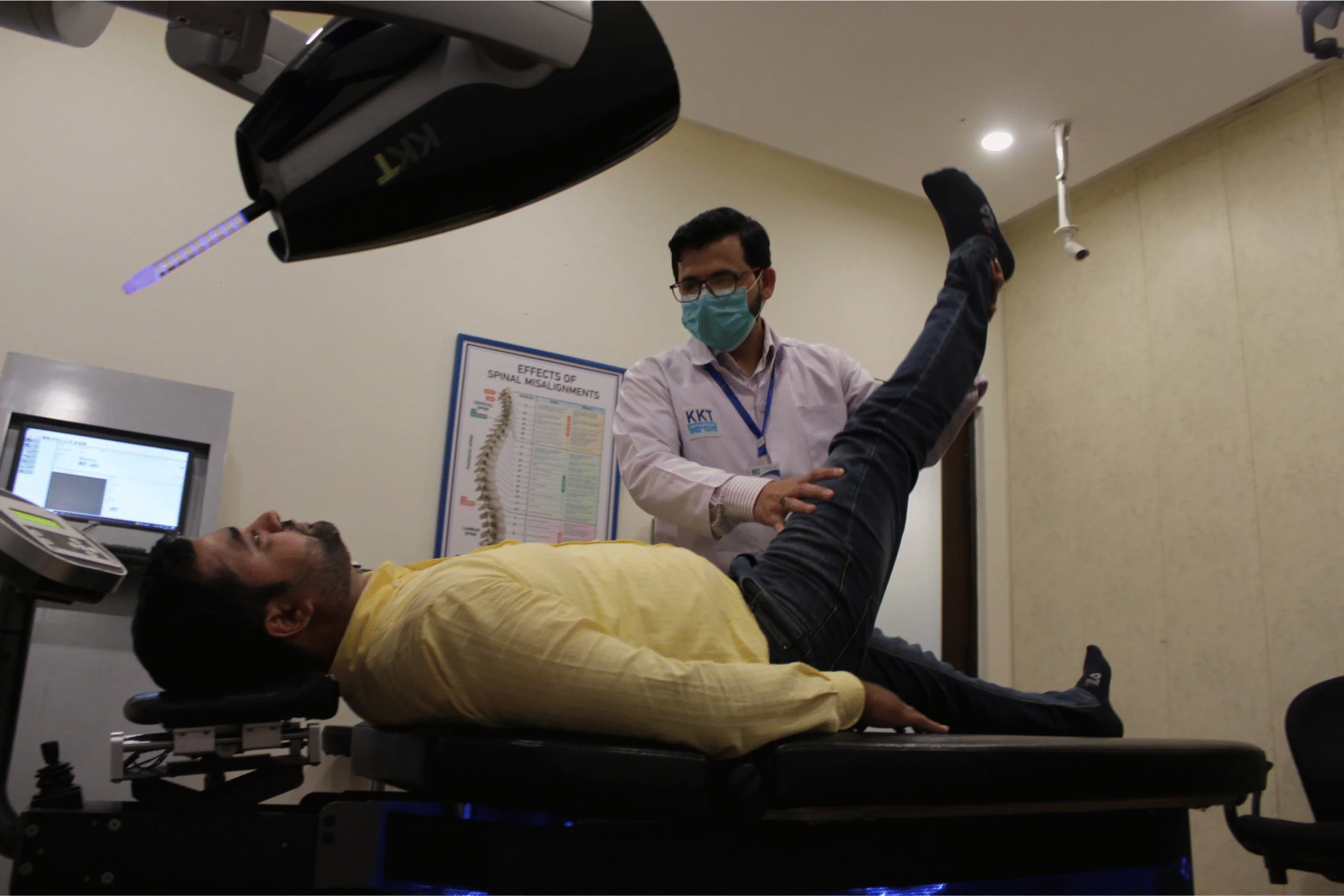KKT Pakistan’s Quantum Acoustic Waves treatment delivers fast, effective relief from rotator cuff injury. It relieves shoulder discomfort, restores joint stability, improves range of motion, and supports balanced muscle function—helping you reclaim your strength.
- Safe and Painless Procedure
- No Adverse Side Effects
- Restores Body Balance
- Health Canada & FDA Certified
- Internationally Recognized Treatment
Potential Causes and Symptoms
Rotator cuff injuries refer to injuries to the rotator cuff, which is a group of muscles and their tendons that act to stabilize the shoulder. The leading causes include repetitive overhead activities, heavy lifting, sudden trauma, or age-related wear and tear. Typical symptoms include:
- Shoulder pain
- Weakness
- Limited range of motion
- Stiffness
- Pain that worsens at night or with movement
- Swelling or tenderness
- Clicking or popping sensations
Caring For The Health Of You And Your Family.
Why Choose KKT Pakistan for Treatment of Rotator Cuff Injury?
At KKT, our certified spine specialists provide expert care using advanced diagnostics and non-surgical technology. Every patient receives a personalized treatment plan, backed by proven success stories, to ensure effective and lasting relief.
- MBBS & FCPS (Ortho) Specialists
- Non-Surgical & Medication-Free Treatment
- Canadian-Based Treatment Method
- Precise Diagnosis of Root Cause
- Long-Term Pain Relief


01
Specialized Assessment
Our team of specialists thoroughly assesses the patient's condition through a comprehensive examination. This assessment includes evaluating the body's balance, as any imbalances can exert pressure on the spine's vertebrae. Additionally, we meticulously assess the muscle’s strength. Through this detailed examination, we aim to understand the patient's orthopedic health better and proceed with diagnostic and 3D x-rays.


02
Diagnostic Exam
We utilize advanced KKT 3D X-ray technology to capture three-dimensional images from the top, lateral, and frontal perspectives. This detailed imaging provides a comprehensive view of the spine, enabling us to precisely detect ailments or abnormalities. By leveraging this advanced imaging technology, we ensure a thorough assessment of the spine's health, facilitating accurate diagnosis and effective treatment.


03
Report of findings
Our team analyzes X-ray results, which reveal crucial insights into the overall spinal condition and facilitate precise diagnosis of underlying issues. Then, the patient has a one-on-one consultation with a specialist, during which the doctor addresses the root cause of the pain and presents a treatment plan to diagnose the problem.
Prevention and Self-Care for Rotator Cuff Injury
After completing KKT treatment, doctors recommend follow-up sessions and evidence-based preventive measures to reduce the risk of rotator cuff injury recurrence. By following expert self-care guidance, you can restore shoulder function, minimize pain, and prevent further injury. Incorporating posture correction, shoulder-strengthening exercises, and ergonomic practices supports joint stability and empowers you to maintain long-term shoulder health.
Book An Appointment
If you’re suffering from back pain or spinal discomfort, book your appointment with KKT Pakistan today for personalized and non-surgical back pain relief.
Why KKT Is the Trusted Leader in Spine & Orthopedic Care
Noninvasive & Non-Medicinal
Say goodbye to long surgical procedures—our non-invasive, medication-free spinal and orthopedic treatment offers safe relief without scars or surgical risks.
Painless
KKT Sound Wave Technology delivers a fully safe, pain-free treatment experience with no discomfort or harm.
State-of-the-art Technology
We prioritize research-backed Canadian-based technology at our orthopedic center to provide our patients with top-tier medical care.
Inspiring Stories!
How KKT Treatment Works
Health Essentials
Recent Articles

- dev
Mobilize Your Spine and Say Goodbye to Stiffness!
Mobilize Your Spine and Say Bye to Stiffness! Back stiffness is becoming increasingly common. But you cannot just agonize this forever! You need to get out of this irksome sitch. You definitely require some fruitful tips to relish pain-free moments. Just have a look on the points mentioned below and

- dev
Wait, There is Something Wrong with Your Kid’s Backpack!
Many of us underestimate the very small things in our lives. Backpack is an utmost example. Whether you are going to school or you are going to travel, backpack will be there to contain your essentials. But the real issue is, are we carrying it properly? If not, then there

- dev
Avoiding Plane Rides Just Because of Backache? Read This!
Avoiding Plane Rides Just Because of Backache? Read This! Everyone adores airplane rides! You will love to go to Switzerland and France via airplane. But this back pain, it really hurts right? Imagine you are going to this beautiful trip with your beloved other significant and your back starts hurting.
FAQs
Lower back pain often comes from poor posture, muscle strain, slipped discs, or spinal misalignment. Sitting too long or lifting heavy objects incorrectly can also trigger it.
Yes! Modern back pain therapy relieves pressure on the disc and nerves, reduces pain, and helps restore mobility, all without surgery.
KKT is non-surgical and painless. It uses precise sound waves to realign your spine and heal naturally, with no cuts, no medication, and no recovery downtime unlike surgery.
Definitely. Physical therapy strengthens your back, improves posture, and reduces stiffness, helping you move freely and prevent future pain.
Use heat or ice, do gentle stretches, maintain good posture, and stay active. Even short walks or yoga can ease tension and support long-term back health.


